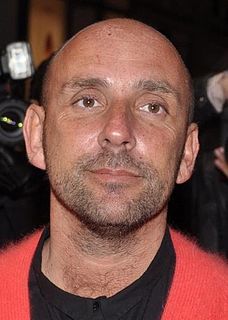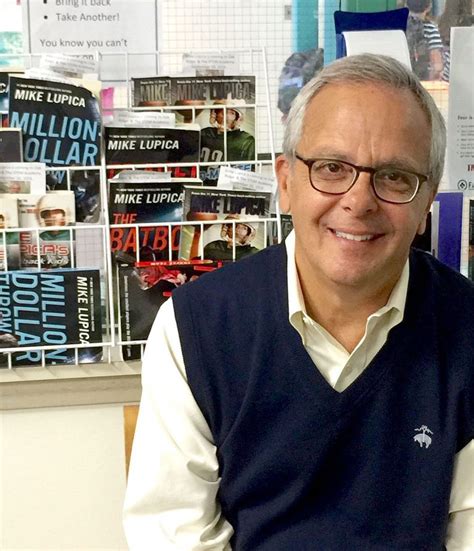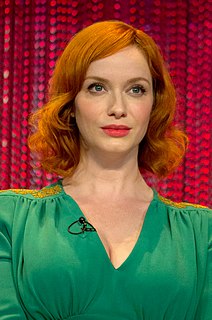A Quote by Dan Mazer
So, as opposed to getting people in to read the script and read scenes with me, what I wanted to do was sit down and chat to these people and just say, "Okay. Do you share my sense of humor? Do you understand what this film is getting at? Do you know the tone that we're trying to get to?" And it was interesting.
Related Quotes
Too many people are surfing the web and trying to figure out the politics of getting a movie made or taking meetings and trying to get someone to read something instead of creating a truly great script, because something great has a great chance of getting made, but something average that you've sort of talked people into reading doesn't have as good a shot.
It took me three, four years, to get from my first film to my second film, banging on doors, trying to get people to give me a chance. Writing, struggling, with no money in the bank, working as an editor on the side. Working as a cameraman on the side. Getting little jobs, eking out a living. Trying to stay alive, and pushing a script that nobody wanted.
Young screenwriters are always very frustrated when they talk to me. They say, 'How do we get to be a screenwriter?' I say, 'You know what you do? I'll tell you the secret, it's easy: Read 'Hamlet.' You know? Then read it again, and read it again, and read it until you understand it. Read 'King Lear,' and then read 'Othello.'
As we were negotiating, I didn't have a script. Once the deal is closed, they let you read the script. So, I got the script and was reading it like, "Oh, please be good!," because I'd already signed on the dotted line. And I read it and just went, "Okay, I'm going to be okay. Thank god!" It was a really funny, moving story.
Somebody comes to your house. You know they're coming, so it's not a surprise. And they give you an envelope that has your scenes in it. And they sit in the car outside for a half an hour while you read your scenes, then they ring your doorbell and you give your scenes back. Then you shoot the movie a few weeks later or something. The next time you see your scenes is the night before you start shooting. I never read the script [Blue Jasmine], so I didn't really know what it was about.
I read everything. I'll read a John Grisham novel, I'll sit and read a whole book of poems by Maya Angelou, or I'll just read some Mary Oliver - this is a book that was given to me for Christmas. No particular genre. And I read in French, and I read in German, and I read in English. I love to see how other people use language.
I had to audition for Fandango. When I read the script, the role that was interesting - so everyone thought - was the role that Costner played. He was the cool guy. And I read the script, and my representation at the time said, "That's the role you should read for." And I was like, "Really? How about I read for this other role." And they went, "Well, you're not going to get that role."
I had people read it early on and, you know, well-meaning people said to me, you should take out the blogs. I didn't get much positive feedback. Only because most of these people were protective of me - it was sort of like a "tone it down, make it easier to swallow" kind of thing. And I just thought if I do that then it's not the book I want to write.
. . .a sense of humor can be a great help-particularly a sense of humor about (oneself). William Howard Taft joked about his own corpulence and people loved it; took nothing from his inherent dignity. Lincoln eased tense moments with bawdy stories, and often poked fun at himself-and history honors him for this human quality. A sense of humor is part of the art of leadership, of getting along with people, of getting things done.





































